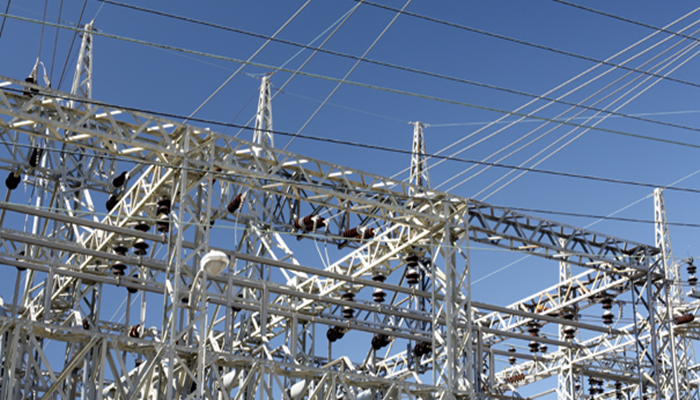
By Collins Okeke,
INTRODUCTION
On March 17, 2023, a few months before leaving office, former President Muhammadu Buhari signed the Constitution Fifth Alteration Act No. 17 into law. The Act broadened the scope of legislative powers of states to participate in the electricity sector by including the generation, transmission, and distribution of electricity in areas covered by the national grid system. Prior to the amendment, the constitution only allowed states to make laws in relation to the generation, transmission, and distribution of electricity in areas “not covered by the national grid system” within the state. Three months after assuming office, President Bola Ahmed Tinubu signed the Electricity Act 2023 into law. The Electricity Act 2023 elaborates on the powers of the federal and state governments in relation to electricity as prescribed in the Constitution Fifth Alteration Act.
There have been mixed reactions among players in the power sector regarding the impact of the new legislative framework. While some see the legislative intervention as progressive, empowering states to attract investment, and bringing about grid expansion and a competitive electricity market, others believe that the intervention does not go far enough as impediments still exist. This article analyses the provisions of the Constitution and Electricity Act as they affect the states of the federation, identifies potential challenges, and proffers solutions. Before delving into the Constitution and Electricity Act, it would be helpful to first explain the structure of the legislative powers of the Nigerian Federation.
STRUCTURE OF THE LEGISLATIVE POWERS OF THE NIGERIAN FEDERATION
Nigeria is a federation with a constitutional division of legislative powers between the federal and state governments. Section 4 of the Constitution establishes the National Assembly, which consists of the Senate and the House of Representatives. The National Assembly is empowered to make laws on matters listed in the Exclusive and Concurrent Legislative Lists.
The Constitution also establishes the House of Assembly for each State, which has the power to make laws on matters on the Concurrent Legislative List. The Exclusive Legislative List contains 68 items over which the National Assembly has exclusive power to legislate, while the Concurrent Legislative List contains 30 items on which both the National Assembly and the State Houses of Assembly can legislate. Electricity is one of the items on the Concurrent Legislative List.
In case of any inconsistency between a law enacted by a State House of Assembly and a law validly made by the National Assembly on a matter on the Concurrent Legislative List, the doctrine of covering the field applies. This means that the law made by the National Assembly shall prevail, and the State law shall be void to the extent of the inconsistency. This doctrine is provided for in Section 4(5) of the Constitution and has been upheld by the Supreme Court in several cases, including:
OSIEC & ANOR v. AC & ORS (2010) LPELR-2818(SC)
OLALEYE-OTE & ANOR v. BABALOLA (2012) LPELR-9275(SC)
In these cases, the Supreme Court affirmed that where the National Assembly has validly legislated on a matter on the Concurrent Legislative List, any State legislation on the same matter that is inconsistent with the federal legislation will be void to the extent of the inconsistency.
CONSTITUTIONAL PROVISIONS ON ELECTRICITY IN NIGERIA
The Constitution of the Federal Republic of Nigeria 1999 (as amended) outlines the powers of the National Assembly and State Houses of Assembly to make laws regarding electricity in Paragraphs 13 and 14 of the Second Schedule. A closer examination of these provisions reveals that the Federal Government, through the National Assembly, has more extensive powers compared to the State Governments.
The National Assembly can make laws for the entire Federation or any part of it concerning electricity and the establishment of electric power stations. It has the authority to legislate on the generation and transmission of electricity within the Federation and from one State to another. The Federal Government can also regulate the right of any person or authority to dam up or interfere with the flow of water from sources in any part of the Federation. Additionally, it can participate in arrangements with other countries for the generation, transmission, and distribution of electricity for areas partly within and partly outside the Federation, promote and establish a national grid system, and regulate the use and operation of electricity supply equipment across the Federation.
In contrast, the powers of State Governments in relation to electricity are more limited and confined to their respective States. State Houses of Assembly can make laws regarding electricity and the establishment of electric power stations within their boundaries. They can legislate on the generation, transmission, and distribution of electricity to areas within their States and establish authorities for the promotion and management of electric power stations established by the State. However, the Constitution does not grant State Governments the power to transmit electricity outside their State boundaries, engage in international arrangements related to electricity, or establish a national grid system.
THE ELECTRICITY ACT 2023
The Electricity Act 2023 further elaborates on the powers of the Federal and State Governments in relation to electricity. Key provisions can be found in Sections 2(1) & (2), 15(1) & (2), 63(1)-(7), 66(1)-(3), and 230(2)-(9).
An analysis of these sections reveals that the Nigerian Electricity Regulatory Commission (NERC), which represents the Federal Government, holds overriding powers in the electricity sector. The Act applies throughout Nigeria to all aspects of the power sector value chain, subject to certain provisions (Section 2(1)). The NERC has the sole authority to issue licenses for electricity generation, transmission, distribution, supply, trading, and system operation, except for exempted cases specified in the Act (Section 63(1)). It can inquire into any person or entity engaging or about to engage in a business that requires a license from the NERC (Section 63(3)) and has wide-ranging enforcement powers, including ordering cessation of operations, confiscation of undertakings, disconnection of facilities, directing violators to apply for licenses, and taking preventive steps (Section 63(4)). The NERC can also penalize licensees for violations of their license terms and conditions, including canceling licenses (Section 63(6)), and has the power to issue independent electricity transmission network licenses where there is a need for extension or reinforcement of the transmission network (Section 66(2)).
On the other hand, the powers of State Governments in relation to electricity are constrained by the provisions of the Electricity Act 2023. While states can pass laws related to various aspects of electricity within their territories (Section 2(2)(a)-(e)), collaborate with the Federal Government and local governments for rural electrification, electricity access, and investment promotion (Section 2(2)(d)), and establish state electricity markets and regulatory authorities (Section 230(2)), their powers are subject to conditions stipulated in the Act. For instance, state-granted licenses cannot permit inter-state or transnational electricity distribution (Section 63(2)(b)), and the Commission retains regulatory powers over mini-grids, IEDNs, and IETNs in states that lack legal and institutional frameworks or rely on the national grid (Section 63(7)). Moreover, if a state requests the transfer of regulatory authority, it must follow a process outlined in the Act, which includes the Commission drawing up a plan and timeline for the transition of regulatory responsibilities to the state regulator (Section 230(3)).
POTENTIAL CHALLENGES WITH THE CONSTITUTION AND ELECTRICITY ACT 2023
The Nigerian Constitution and Electricity Act 2023 present several potential challenges that may impede the ability of states to drive growth in the electricity sector. One significant issue is the exclusive power granted to the Federal Government under paragraph 13(b) of the Constitution to legislate on inter-state electricity transmission. This centralized approach may limit states’ ability to develop interconnected transmission networks tailored to their specific needs, hindering the efficient allocation of resources and discouraging private sector investment in transmission infrastructure.
Another challenge arises from the potential for conflicting or inconsistent regulations between the federal and state levels regarding the use, operation, and maintenance of electricity supply equipment and apparatus. This fragmented regulatory landscape could lead to increased compliance costs for market participants and hinder the development of a competitive and efficient market for electricity supply equipment and services.
Furthermore, the restriction on state-granted licenses from permitting inter-state or transnational electricity distribution under Section 63(2)(b) of the Electricity Act may create a fragmented and inward-looking electricity market. This provision limits the ability of states to leverage their comparative advantages and develop specialized electricity distribution services that could serve cross-border markets.
The restriction of independent electricity transmission network licenses to greenfield sites within licensed states, as per Section 66(3)(b) of the Electricity Act, may lead to a fragmented approach to transmission network development. This could result in isolated infrastructure, poor integration with existing networks, inefficiencies, higher costs, and discourage investments in upgrading and expanding current transmission infrastructure, potentially impacting the reliability and stability of electricity supply.
Additionally, the process of transferring regulatory responsibilities from the federal Commission to state regulators, as outlined in Sections 230(3) to (7) of the Electricity Act, may create a period of regulatory uncertainty and inconsistency, leading to disparities in the quality and effectiveness of regulatory oversight across different states.
SOLUTIONS/RECOMMENDATIONS
To address the challenges posed by the Nigerian Constitution and Electricity Act 2023, several solutions and recommendations can be considered. First, constitutional amendments could provide a more decentralized and collaborative framework for inter-state electricity transmission planning and development. Amending paragraph 13(b) of the Constitution to grant states the power to legislate on inter-state transmission projects tailored to their local needs and priorities, subject to coordination with the Federal Government and other affected states, could help alleviate the limitations imposed by the current centralized approach. Additionally, the amendment could include provisions for establishing regional transmission planning authorities, comprising representatives from the Federal Government and relevant states, to ensure a coordinated and integrated approach to transmission network development.
Second, revising the Electricity Act could help address the regulatory challenges and inconsistencies between federal and state authorities. Amending the Act to provide a clearer delineation of regulatory responsibilities, with a focus on promoting harmonization and minimizing overlaps, could involve establishing a joint regulatory committee or forum, as envisioned in Section 230(9), with a specific mandate to develop and implement consistent regulations and standards for the electricity sector. Revising Section 63(2)(b) to allow states to grant licenses permitting inter-state electricity distribution, subject to coordination with other affected states and the federal Commission, could help create a more integrated and flexible electricity market. Furthermore, amending Section 66(3) to allow for a more flexible and integrated approach to developing independent electricity transmission networks, by removing the restriction on the franchise area to greenfield sites and allowing for the coverage of both greenfield and existing sites, as well as the extension of licenses beyond state boundaries where necessary, could enhance the efficiency and reliability of the electricity supply.
Third, establishing coordination and cooperation mechanisms could help foster collaboration and knowledge sharing between federal and state regulators. Creating a joint regulatory committee or forum, as envisioned in Section 230(9), with a clear mandate and terms of reference for coordinating and harmonizing electricity sector regulations between the federal and state levels, could facilitate regular dialogue and help resolve regulatory issues and challenges. Additionally, creating a dedicated fund or program, managed by the federal Commission or the inter-governmental body, to provide capacity building and technical assistance to state regulators could help address disparities in institutional capacity and expertise across different states. Leveraging the inter-governmental body to facilitate knowledge sharing, coordination, and harmonization of regulations between the federal and state levels could also help identify and address common challenges and opportunities in the electricity sector, as well as contribute to the development and implementation of a national electricity sector strategy.
CONCLUSION
The recent constitutional amendment and Electricity Act 2023 have made progress in empowering states to participate in the electricity sector, but challenges such as centralized inter-state transmission planning, potential regulatory inconsistencies, and restrictions on state-granted licenses remain. To address these issues, constitutional amendments promoting decentralization and collaboration, revisions to the Electricity Act enhancing regulatory harmonization and flexibility, and establishing effective coordination mechanisms between federal and state regulators are recommended. Implementing these solutions can unlock the potential of Nigeria’s electricity sector, attract investment, and ensure a reliable and affordable electricity supply.
Collins Okeke is an Associate Partner & Head, Public Sector Practice Group, OIisa Agbakoba Legal.






